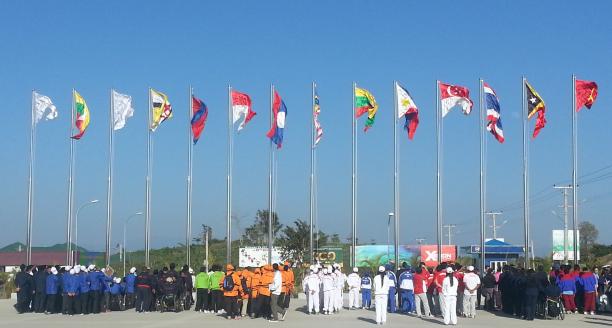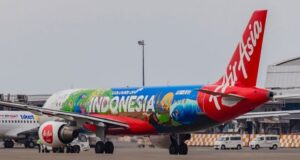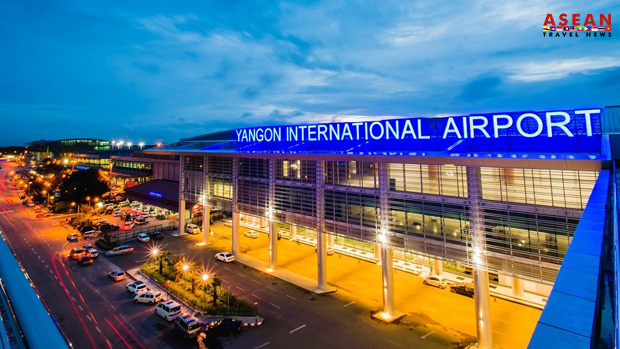US-MYANMAR BUSINESS COMMITTEE
The US-Myanmar Business Committee aims to support Myanmar’s efforts to develop a successful, business friendly regulatory environment, provide a channel for communication between Myanmar’s government and U.S. business, and provide regular information on political and economic developments in the country.
MYANMAR IN THE UNITED STATES
The Council has strong relationships with both the Myanmar Embassy in Washington D.C. and the United Nations Mission, and is a regular port of call for Myanmar officials visiting the U.S. The Council hosted President U Thein Sein for his first visits to the United States in New York in September, 2012 and Washington D.C. in May, 2013. The Council works closely with the U.S. government on understanding and providing feedback on their policies related to Myanmar.
US-ASEAN BUSINESS COUNCIL IN MYANMAR
The Council led the first U.S. business mission to visit Myanmar following the suspension of sanctions, arriving two days after the official announcement. The Council also participated in the first reception held by Ambassador Derek Mitchell, the first to hold his post. In July 2013, the Council led its Second Business Mission to Myanmar, and the delegation had meetings with President U Thein Sein, Lower House Speaker Thura U Shwe Mann and National League for Democracy Chair and Member of Parliament Daw Aung San Suu Kyi, in addition to a number of key ministers and business leaders. The Council has long-term relationships in Myanmar and will continue to participate in regular events.
MYANMAR SUCCESS STORIES
The Council, working as a key part of the U.S. business coalition on Myanmar, has helped provide business input into key administration decisions on sanctions and reporting policy. The Council has also worked with the Myanmar government to shape the Foreign Investment Law and continues to focus on new legislation such as the telecoms law.
COUNTRY SUMMARY
With a population of over 60 million people and abundant natural resources, Myanmar is in the midst of sweeping political and economic reforms that are earning it the title of Asia’s ‘last frontier market’. Since the current period of reforms began in 2011, Myanmar has seen a substantial uptick in Foreign Direct Investment, although it still remains last in ASEAN in most economic indicators.
Although U.S. companies have some U.S. government imposed restrictions that other countries do not have, is increasing interest in and demand for the products and services that American companies can provide. There is also a widespread desire to see American firms help develop the country’s resources and provide jobs, as American companies know how to ‘do it right’.
Most of the current Myanmar government was installed in March of 2011, including the sitting President U Thein Sein. This was followed in 2012 by a round of parliamentary by-elections, which resulted in a victory for Nobel laureate Daw Aung San Suu Kyi, who assumed office in July of that year. These events triggered the easing of many U.S. sanctions on Burma by President Obama, some of which had been in place since 1988. Currently, Myanmar is still moving forward with its political reform by holding peace talks with ethnic groups in the resource-rich areas along the nation’s borders, as well as by considering the Burmese military’s future role in the nation’s political life. The 2015 elections will be a significant event in Myanmar’s history, and the Council continues to follow events on the ground there closely.
In October of 2012, the Myanmar government passed a comprehensive Foreign Investment Law, which among other things allows overseas firms to fully own ventures and offers tax breaks and lengthy land leases. Since then, investments from all over the world have funded various projects in a variety of sectors, including manufacturing and telecoms. This is having the positive effect of moving Myanmar away from exclusive reliance on resource extraction as a source of foreign capital. Telecommunications development in particular is moving forward quickly, largely as a result of the government’s tender process, which was internationally hailed for its fairness and transparency.
While having enormous potential as an investment destination, there remain unique challenges to operating in Myanmar and the Council plays a vital role in helping member companies navigate those challenges. Our country experts continuously monitor the country’s uncertain and volatile regulatory environment, providing members with timely information, as well as with direct access to Myanmar decision-makers on businesses missions and at events in Washington, D.C.
Sanctions issues remain a significant concern for our member companies. On May 15, 2014 President Obama renewed the National Emergency with Respect to Burma, saying ‘the actions and policies of the Government of Burma continue to pose an unusual and extraordinary threat to the national security and foreign policy of the United States’. Members should note that the use of this language is technically necessary in order for the President to invoke the National Emergencies Act (NEA), an authority granted to him by the International Emergency Economic Powers Act of 1997 (IEEPA). These two regimes govern existing U.S. Sanctions on Burma. Thus, the renewal does not mark any change in U.S. economic policy toward Burma. U.S. sanctions on Burma remain in place along with the series of waivers issued in 2012 which ease those sanctions.
For a comprehensive CRS guide to U.S. sanctions on Burma, see U.S. Sanctions on Burma: Issues for the 113th Congress
 Asean Travel News Travel News Agency in Delhi
Asean Travel News Travel News Agency in Delhi






